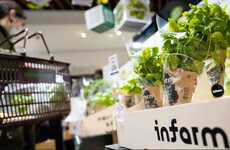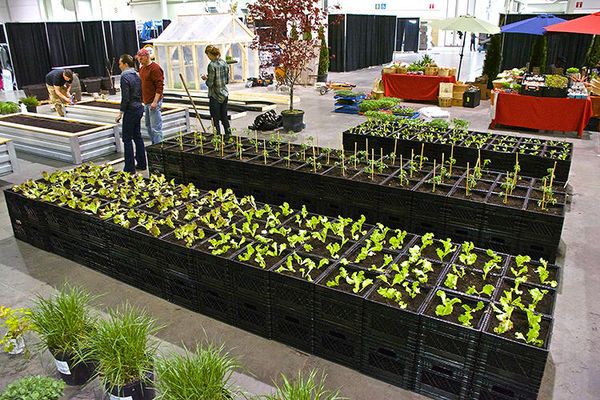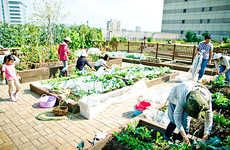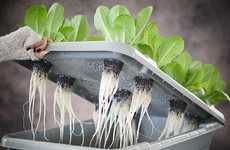
The Bowery Project Uses Vacant Lots to Support Urban Agriculture
Alyson Wyers — May 7, 2014 — Eco
References: boweryproject & fastcoexist
You might be familiar with pop-up stores dealing in fashion retail or restaurants, but The Bowery Project is about microfarms and urban agriculture. The Toronto non-profit organization uses vacant lots for pop-up food gardens which can quickly be abandoned if a developer is looking to build. Co-founded by Rachel Kimel and Deena DelZotto, The Bowery Project converts these city spaces into centers for urban agriculture that provide neighborhoods with local produce.
The food from these movable urban farms is divvied up into three portions: one third to local hunger organizations; one third to farm volunteers; and one third is sold to local chefs. This last section works to offset The Bowery Project's costs and also allows them to grow produce typically unavailable in cities and diversify the kinds of ingredients urban cooks have access to.
The food from these movable urban farms is divvied up into three portions: one third to local hunger organizations; one third to farm volunteers; and one third is sold to local chefs. This last section works to offset The Bowery Project's costs and also allows them to grow produce typically unavailable in cities and diversify the kinds of ingredients urban cooks have access to.
Trend Themes
1. Urban Agriculture - Opportunity for innovative solutions that bring agriculture to urban spaces, utilizing vacant lots and pop-up gardens.
2. Pop-up Farms - Disruptive innovation potential in creating movable farms that can quickly be abandoned if needed, addressing space constraints in urban areas.
3. Local Food Systems - Potential for disruptive innovation in establishing sustainable, local food systems that provide neighborhoods with fresh produce and support community needs.
Industry Implications
1. Non-profit Organizations - Opportunity for non-profit organizations to explore the concept of urban agriculture and develop initiatives that utilize vacant lots for pop-up food gardens.
2. Hospitality and Culinary Industry - Innovative opportunities for chefs and restaurants to source locally grown produce from urban farms, diversifying their ingredient options and supporting sustainable practices.
3. Real Estate and Property Development - Disruptive potential for developers to incorporate urban agriculture spaces into their plans, creating value-added amenities and addressing community needs.
6.5
Score
Popularity
Activity
Freshness























